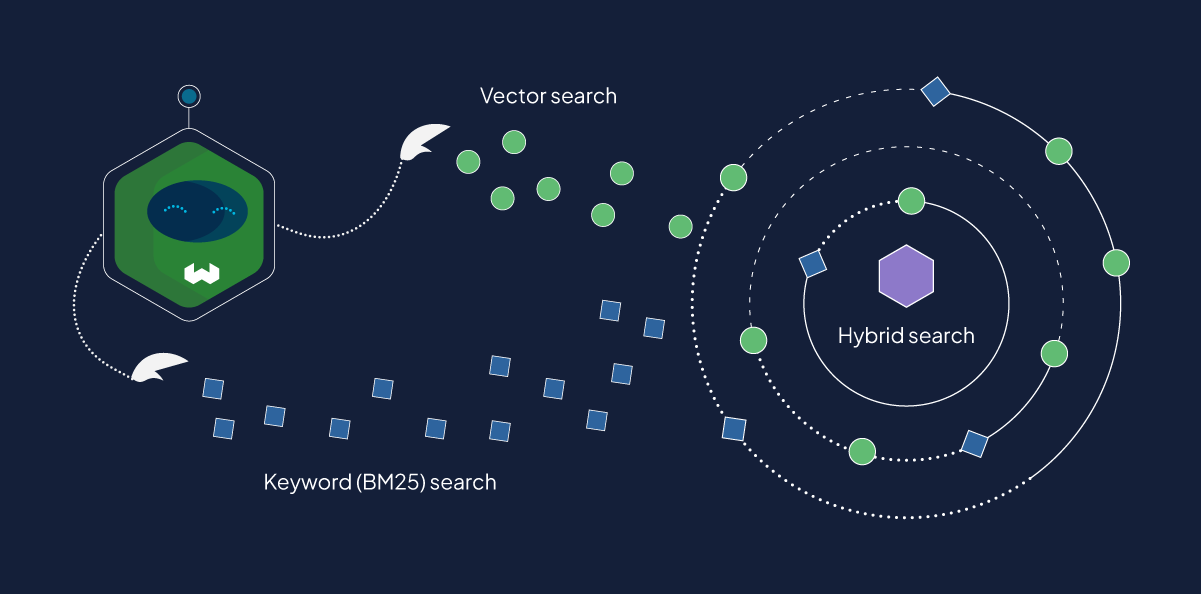The digital age has ushered in an era where the ability to swiftly and accurately navigate vast oceans of information is paramount. In this context, the evolution of search technologies, especially the advent of hybrid search strategies, represents a significant leap forward. These innovative approaches synergize vector and keyword-based searches with specific algorithms to optimize search outcomes, enhancing both the speed and relevance of search results. This exploration into the world of hybrid search technologies reveals how the strategic fusion of diverse search methodologies is reshaping our digital experience.

Hybrid search defies a one-size-fits-all definition, embodying a variety of strategies that integrate more than one search algorithm to refine search capabilities. Among these are combinations such as vector search paired with attribute filtering, the melding of vector search and keyword-based search, as well as the integration of dense and sparse vectors. Each approach leverages the complementary strengths of the combined methodologies to overcome specific challenges inherent in standalone search technologies.
The significance of keyword-based search remains, even with the breakthrough of vector search technologies that excel in multi-lingual and specialized domain searches, handling ambiguous content with finesse. Yet, scenarios that call for out-of-domain searches, search-as-you-type functionalities, and exact phrase matching highlight the irreplaceable value of keyword-based searches. The methodologies involved, such as BM25 for ranking and simple prefix search, demonstrate the adaptability and enduring relevance of keyword search methods in the ever-evolving landscape of search technologies.
Integrating hybrid search technologies into existing search frameworks involves strategic implementations like treating vector search as a fallback strategy. This is particularly evident in search-as-you-type features where MeiliSearch stands out for its capability to provide rapid results, balancing speed with the comprehensive search capabilities of vector search, specifically through Qdrant for more detailed queries. Furthermore, the realm of document retrieval benefits from the fusion of full-text search engines like Tantivy, lnx, ZincSearch, and Sonic with vector search, courtesy of Qdrant, showcasing the potential for enhanced search result quality without sacrificing efficiency.
Diving deeper, the specific algorithms that facilitate this harmonious integration include Borda, Combining Probability Mass Function (CPMF), Rank-Biased Precision (RBP), LambdaMART, and Neural Rank Fusion. Each algorithm serves a distinct purpose, from the Borda algorithm’s simplicity in merging ranked lists to the advanced machine learning capabilities of LambdaMART, which is utilized by tech giants for optimizing search results. Moreover, the incorporation of Neural Rank Fusion models demonstrates the potential of deep learning in processing and combining individual rankings to produce a superior fused ranking, highlighting the forward-thinking applications of these technologies.
The seamless integration of these specific algorithms within hybrid search strategies exemplifies the cutting-edge advancements in search technologies. By blending the contextual insights of vector search with the precision and rapidity of keyword-based searches and specific algorithms, hybrid search technologies not only enhance the relevance and accuracy of search results but also redefine user experiences. This evolution signifies a future where search engines are not only more intuitive and efficient but also more aligned with the diverse and dynamic needs of users, setting a new benchmark for digital search capabilities.

